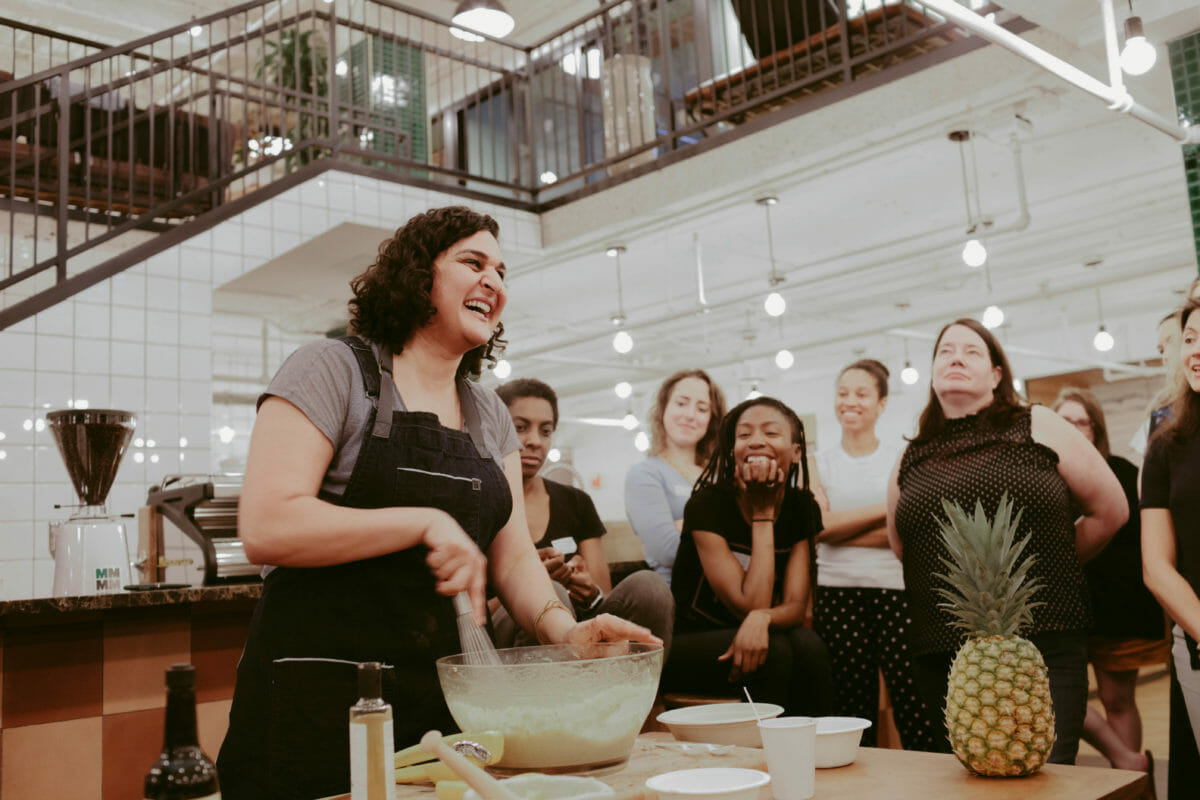A Q&A with the Women of Pineapple, a community for underrepresented voices in the food space.
Three years ago, Ariel Pasternak moved home to Washington, D.C., to help open an environmentally conscious taco shop that uses only seasonal vegetables. There, she met women from all facets of the food industry, from food-bank workers to photographers to Environmental Protection Agency employees. Despite their shared passion for food, these women lacked an opportunity to network, so Pasternak began hosting dinner parties to bring them all together.
This lay the groundwork for Pineapple, a monthly live-event series in New York, San Francisco and Washington — think intimate gatherings in Brooklyn hotels with carbonara and cocktail tastings — as well as a blog and podcast with more than 70,000 members. They credit the growth of their community to one simple philosophy: Support the women you admire.
Pasternak and co-founder Atara Bernstein share where food and feminism collide, what’s in their kitchens and why they’re going in on a cow share.
Pineapple focuses on under-represented voices in the food industry. How do you approach inclusivity?
Atara Bernstein: The reason for its existence is to tell the stories of marginalized sources across the food space. We do that implicitly, by featuring women of many walks of life and backgrounds, and explicitly, by addressing these issues in our content. It’s not just that we select women of color to be panelists; we also talk about the issues these women face (what it’s like to be a woman of color in the wine industry and culinary appropriation).
What agricultural issues does Pineapple focus on now?
Ariel Pasternak: Soil health is a big one, as we’re seeing how climate change is having a huge impact on our world, including our food system. One woman in our community, Aria McLauchlan, is the co-head of Land Core USA, which advocates for a bipartisan soil health policy at the federal level.
What local produce are you buying this season?
A.B.: I just picked up a beautiful blue hubbard squash from The Farm at Sunnyside.
A.P.: One of the owners of Amber Waves Farm stone-ground some of her wheat berries for me to use as flour, so I’ve been making rosemary crackers. We also recently recorded a podcast episode with Abigail Fuller, the only female director of Netflix’s Chef’s Table. She lives on a regenerative grazing operation called Another Perfect Day, outside of D.C. Atara and I are buying their meat by going in on a cow share.
What’s the inspiration behind your Pine for Pantry series?
A.P.: We’re all about providing a platform for women to express their style, identity and values through food. Kitchens are such an important place in that exploration. More than our beauty cabinets and closets, kitchens are how we express ourselves.

Very cool. Hope to hear more about Pineapple in the coming year.
The soil health, the content of microorganisms in it, the proper regulation of the carbon content in the soil are my current areas of interest to me and, of course, how it manages to balance in organic farming.
As a woman I love reading about successful life and work about women who live their mission in life, especially if it is associated with nature.
Thanx
Marija
I am a woman in the food industry interested in getting involved. How do I do that?